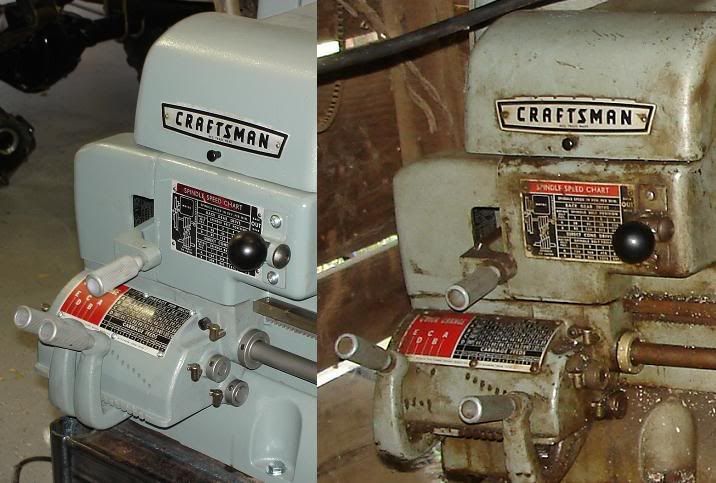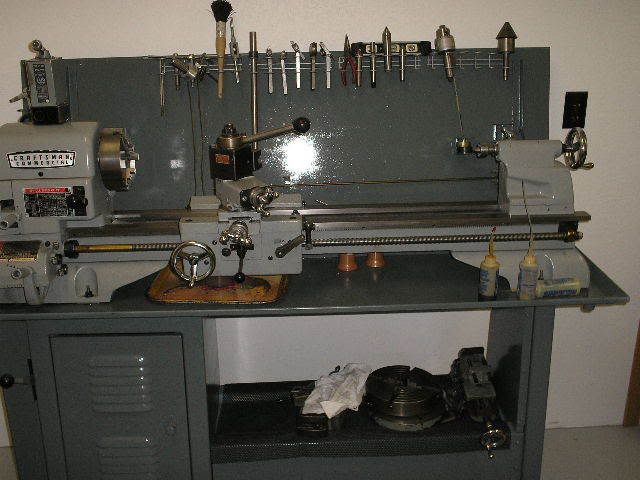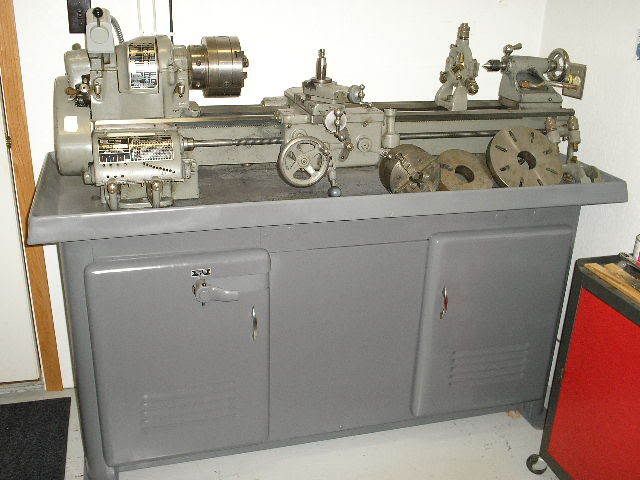Re: What makes a lathe good?
<div class="ubbcode-block"><div class="ubbcode-header">Originally Posted By: SDWhirlwind</div><div class="ubbcode-body"><div class="ubbcode-block"><div class="ubbcode-header">Originally Posted By: 300sniper</div><div class="ubbcode-body"><div class="ubbcode-block"><div class="ubbcode-header">Originally Posted By: SDWhirlwind</div><div class="ubbcode-body">:snip: I currently have a 12x36 Craftsman/Atlas which is fairly accurate and although you cannot chamber in the chuck because the spindle hole is only 27/32" I like chambering/threading between centers anyways. :snip:</div></div>
i had a 12x36 craftsman/atlas but ran out of room and couldn't justify keeping it. i didn't want to get rid of it because it was so cool. i spent a lot of time restoring it. it was in excellent physical condition but the paint was in bad shape from being in a barn for years. i know it is not the most rigid machine and the rectangle bed ways are not as good as vee ways but out of curiosity, how does it do for barrel work with a steady rest?
here is a before and after restoration picture of my old craftsman/atlas:
</div></div>
While mine wasn't a gem when I got it I only pd $600 + tax at an estate auction. It had 3 chucks, faceplate, milling attachment, steady, follow, and most everthing needed as far as small tooling. Bed wear ahead of headstock was .005-.008. There was some parts etc for a toolpost grinder and I think that was the cause of much of the bed wear but couldn't confirm as owner was deceased. My before wasn't as bad as yours but the after is near identical. The bed I bought off fleabay was supposed to be original and 98% condition. When it arrived it had 5/16" machined off inside of each way so headstock casting wouldn't fit as originally designed. I used keystock and roll pins to replace the part of the way machined out and designed a different bracket to bolt into front of headstock etc. Seller claimed he would refund 80% of my money if I pd another $80 for return shipping, bastard. I thought I was screwed but after some thought etc made it work out ok. Also gearbox casting had eggshaped hole for upper shaft I assume from lack of oiling. I bought a new casting, new threading chart plate, new leade screw etc. Looks like a new one now and I have about $1600 into it. I know I can get my money back on it.
I have chambered and threaded 13 barrels on it and rechambered or setback probably 15 more at least. The worst runout I had on a chamber was .0015ish and was found to be from some questionable steel and the egg shaping was determined by Kiff, Krieger(not their barrel blank) and John King of Kila, MT who redid brothers barrel because his had same issues and was done by a different smith. I did mine and while it shoots super you cannot run full max loads because of extraction issues. The other chambers are all around .0005 runout on a fired case. Sure many will think .0005 is the work of a rookie but I have been satisfied with my obtainable accuracy and have many p dogs, coyotes etc who CANNOT verify they don't shoot.LOL
The Craftsman/Atlas sure isn't for 'commercial' production even though it claims so on the name plate but overall is a descent light duty hobby machine. I made all the Wichita bipod swivel studs on it etc. I should sell it but like you I just cannot seem to think of NOT having it around but I don't need 2 either. The milling attachment etc comes in handy at times for light duty tinkering.
Here are a couple of shitty pics, which I am known for
</div></div>
oh i don't know about that ( shitty pics ) i saw one of your pics and fell in love
hahahaha hey swirlwind nice lathe's






